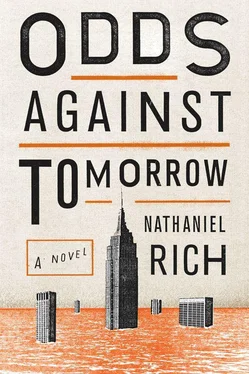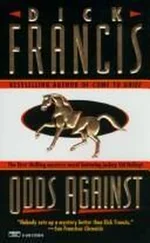“All right, how’s this,” said Mitchell. “Come with me, and we’ll sort out the details of Future Days on the way.”
The phone rang, another unlisted number.
“Let me take it.”
Mitchell handed Jane his phone.
“I’m his representative,” she said. “Only on one condition,” she said. “Future Days,” she said. “Founder and director.”
Jane hung up.
“This,” she said, “is going to be mega.”
2.
In the ziplock bag the bills had thawed and were lightly perspiring. But he hadn’t needed them yet. All bus and train transit had been government commandeered. The refugees received frequent handouts: sandwiches, bananas, Jell-O cartons, phone chargers, water bottles. There were no longer any shortcuts out of the city. They had to follow the masses; they had to ride the motorcoach. Traveling so slowly was exhausting. They might have made it more quickly on foot. The highways had been transformed into parking lots, shrouded in clouds of exhaust. But it wasn’t just the roads that were crowded; the cars were packed too, crammed full of possessions that had been accumulated over lifetimes. Save two of everything, so that they can replicate in the new world: two flatscreens, two laptops, two gaming consoles.
In the torn-up fields beside the interstate, sinuous white vapor rose like smoke in the wake of an explosion. Tammy had spent the greatest portion of her rage on New York and had weakened once she reached Connecticut, but not considerably. The earth had still been scoured, as by a vast cloud of steel wool. And the road itself was an obstacle course: car crush-ups, roadkill, fallen trees. It took half a day just to reach the Rhode Island state line. Every few hours Mitchell tried to call Billy, but there was not even a ring signal, just an empty, scratchy noise, the sound of a record that keeps spinning after the side is over. The Ticonderoga phone, or the wires, seemed to be dead. Anything that was frail before the storm was now dead.
When television or radio producers called, Jane answered his phone. She introduced herself as Mitchell Zukor’s publicist. She coached Mitchell to speak with humility and formality, and she limited interviews to five minutes. When newspaper and magazine journalists called, Jane introduced herself as Mitchell Zukor’s spokeswoman. She did those interviews herself.
“This is just the very beginning,” said Jane. “Keep them wanting more.”
At one point in almost every conversation he was asked, “What’s going to happen next? To New York, to America, to the world?”
“That information,” said Mitchell, “we reserve for our clients.”
Nobody on the bus paid them any attention.
After midnight the driver pulled over at a turnpike motel in Warwick, where power and electricity had been restored. Mitchell and Jane were given a room with a queen-size bed, dingy yellow carpeting, fluorescent lighting, and a dense cigarette aroma with a urine finish. The bus would leave again in less than six hours. When Mitchell entered the bathroom he was surprised by his reflection. The face in the mirror looked unhappy. In fact the face was giving a very strong suggestion of tears.
Mitchell dumped his sewage-stained clothes into the bathtub: slacks, Leonardo Fibonacci T-shirt, socks, even the boots. He emptied the contents of his Go Bag onto the sink counter — opening the ziplock bag to let the bills air — and then tossed his backpack into the tub as well. He twisted the hot faucet as far as it could go. When the water hit the clothes it released a metallic smell that thickened into something raunchy, animalistic. Mitchell squeezed the microbottle of courtesy shampoo into the tub. He tore open the microbar of courtesy soap and scrubbed at his shirt, trying not to let the blackening water splash on his naked body. But it couldn’t be helped. The stray drops left blue stains on his flesh. Mitchell let the tub drain, then refilled it. This time he emptied the microbottle of courtesy conditioner; it bubbled into an ashy foam. After thirty minutes the clothes, while not clean by any measure, had at least regained their original hues. He hung them on the towel rack and, with the last butter pat of soap, took a shower. When he came out of the bathroom Jane was asleep under the covers, in her clothes.
At rest stops, fast-food chains donated value meals. The bus passengers, blandly dipping their french fries into ketchup splats, didn’t speak very much. For Jane, revived by three cups of coffee, the long silences were maddening, a source of stress. She filled the vacuum with talk about her mother in Winnetka, a fastidious woman who forbade Jane from playing in the sandbox.
“Fear of germs,” she said. “When I came home from school I had to scrub my hands twice with soap and hot water. My little washerwoman hands, raw and red.”
“You didn’t get sick, though, did you?”
“That wasn’t the end of it — after the soap and hot water she sprayed me with disinfectant. Of course it didn’t really matter if my hands were dirty because everything was covered in vinyl. Slips over the furniture. But I did get sick. Often.”
“Because you cheated. You told her you’d washed your hands when you hadn’t.”
“No — because I didn’t cheat. That was the problem. I never built up a proper immune system. When I was given the chicken pox vaccine, I actually contracted full-blown chicken pox. The infectious disease specialist at Skokie Hospital said mine was the first case in Chicagoland in a decade.”
The shoulders on I-95 were plugged with cars. Many people had run out of gas; others had given up and, in some cases, pitched tents in the median, waiting for the traffic to subside. The exhaust was so dense on the road that it seeped into the bus’s air circulation system. It thickened into a large pillow, and the pillow pressed into Mitchell’s face, stopping his breath. He felt like he was being asphyxiated and he was only surprised that nobody else seemed affected by the recirculating exhaust — nobody was passing out or keeling over in the aisles. Nobody on the bus, in fact, was doing much of anything. The traffic, or traumatic shock, or just pure exhaustion had left the refugees in a narcotized stupor. They leaned against each other to sleep, or stared out the windows with expressions of horror and wonderment, preparing, perhaps, for the next crisis.
At the New Hampshire border, Jane began calling FutureWorld clients to introduce them to Future Days. The clients had heard Mitchell’s voice on television and radio, had seen the Wall Street Journal piece. Charnoble’s messages and e-mails, frantic coming on enraged, went unreturned.
But Jane’s constant phone chatter, her interviews and her repeated pitch to the FutureWorld clients she was busily poaching, finally became too much. Mitchell took the phone from her hand and turned it off.
“Why’d you do that?” She looked wounded.
“Let’s take a break.”
Jane sighed. “I suppose I was getting a little carried away. It’s just … incredible. How things can turn.”
“What do you mean?”
“A year ago today I was at Lippincott Library doing research for my thesis.”
“A day ago you were an analyst. Now you’re a mogul.”
“It’s been a long day.”
She needed to talk, needed chatter. It was almost a compulsion with her. The phone calls to clients were as much a manifestation of nervous energy as shrewd business planning. He couldn’t fault her. Set adrift, in a bus headed into unknown territory, it helped to grasp onto something familiar. Besides, he was responsible, after all, for the mess they were in.
That was the one thing unspoken between them. He should have told her to leave the city as soon as the storm came. But he had said no such thing. He did the opposite, in fact: when she asked him to wait for her, he had agreed. Very well, but — let’s be honest now — he wasn’t just being timid, or thoughtless, or kind. He was succumbing to a different voice, a whispering voice inside his own head. It was a reasonable, patient voice. It said, if he had to be trapped in this hurricane, wouldn’t it be nice to be trapped with Jane Eppler?
Читать дальше












